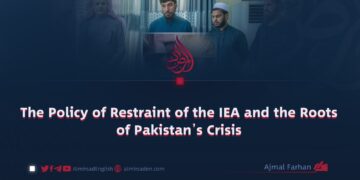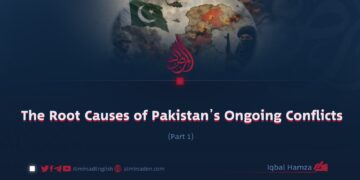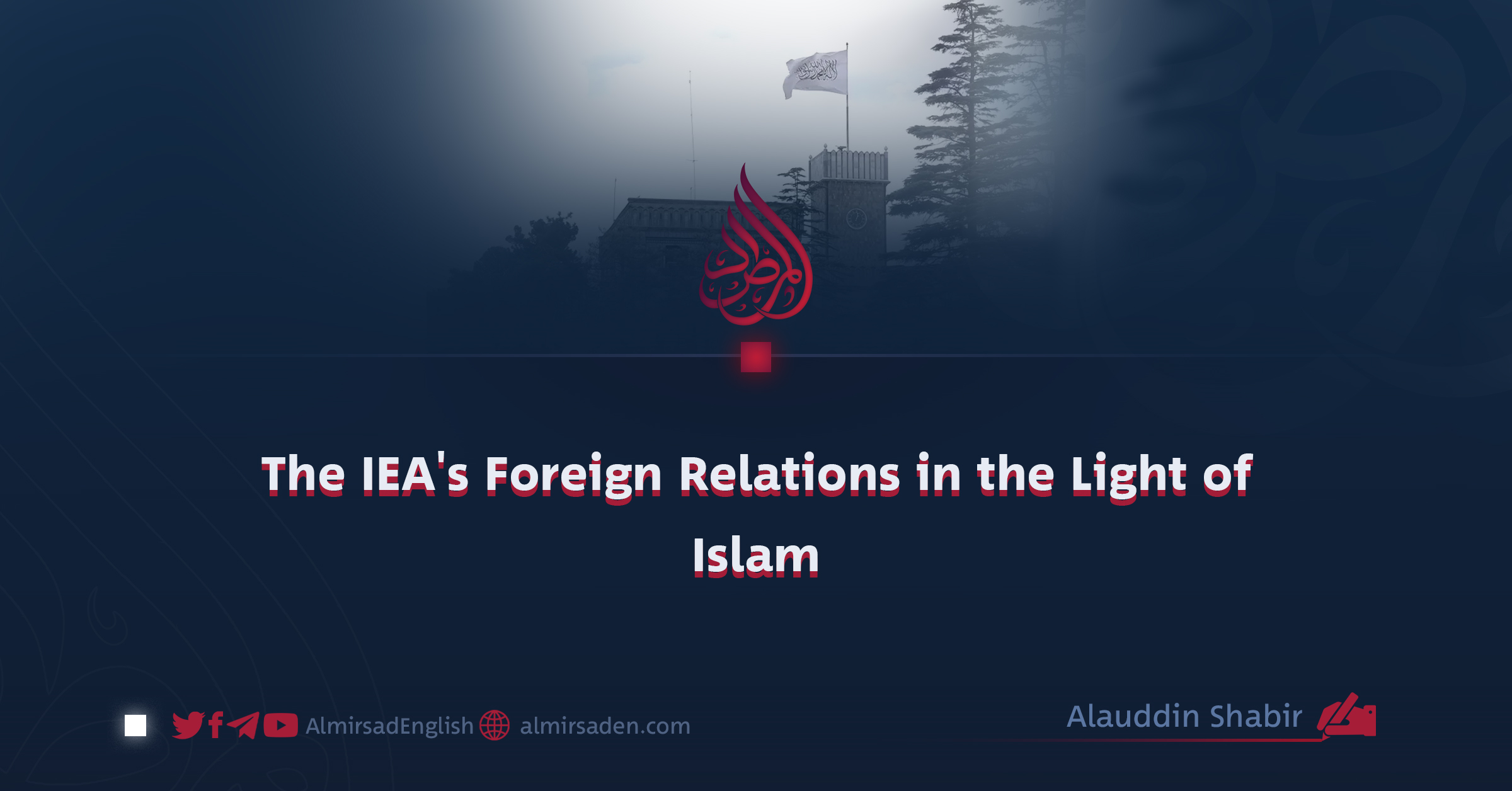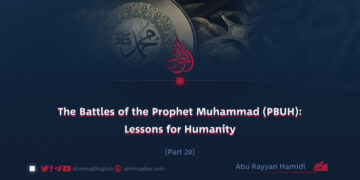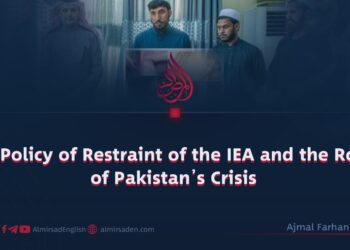Alauddin Shabir
Within the Islamic Ummah, certain extremist factions such as ISIS hold the belief that any form of relationship or interaction with foreign nations is impermissible and contrary to Islamic principles. However, this perspective stems from a distorted interpretation of the Qur’an, the Sunnah, and the Prophetic Seerah. In this article, we seek to clarify the legitimacy, necessity, and objectives of the Islamic Emirate of Afghanistan’s foreign relations in light of Islamic Sharia.
Islam’s Framework for International Relations
Islam lays down a clear and balanced framework for international relations—one based on peace, justice, mutual respect, and the safeguarding of Muslim interests.
Allah Almighty states in the Holy Qur’an:
“Allah does not forbid you from those who do not fight you because of religion and do not expel you from your homes—from being righteous toward them and acting justly toward them. Indeed, Allah loves those who act justly.”
(Surah Al-Mumtahanah, 60:8)
This verse affirms that Muslims are permitted—and in fact encouraged—to treat non-Muslims with kindness and fairness, as long as they do not engage in hostility or interfere in the internal matters of the Muslims.
The practice of the Prophet Muhammad (PBUH) further solidifies this principle. During the era of the Islamic state in Madinah, the Prophet (PBUH) maintained diplomatic and peaceful relations with various tribes and neighboring nations. These interactions took various forms:
1. Peace Treaties: The Treaty of Hudaybiyyah, concluded with the Quraysh, is a prime example of the Prophet (PBUH) seeking peace through negotiation and diplomacy.
2. Envoys and Letters: The Prophet (PBUH) sent letters to regional rulers and emperors, conveying the message of Islam and inviting them to peace and monotheism.
These precedents demonstrate that Islam does not prohibit interaction with non-Muslims. Instead, it encourages relations grounded in wisdom, mutual benefit, and the broader interest of the Ummah.
Islamic Principles on Diplomacy and Reciprocity
Islamic Sharia endorses the principle of mu’amalat bil-mithl (reciprocal dealings). This allows Muslims to engage with others based on justice and fairness, particularly with those who do not exhibit hostility. Such engagement ensures the preservation of Muslim interests without compromising on core values.
As a sovereign Islamic state, the Islamic Emirate of Afghanistan (IEA) is religiously and morally obliged to serve the material and spiritual needs of its citizens. In a globally interconnected world, achieving this objective requires cooperation and engagement with other nations. Severing all ties would invite unnecessary hardships—such as economic sanctions, diplomatic isolation, and international pressure—all of which harm the welfare of Muslims.
Misconceptions and Their Refutations
Some argue that all forms of interaction with non-believers are forbidden. This is a gross misreading of Islamic sources. Islam prohibits only those interactions that harm the faith, dignity, or sovereignty of Muslims. However, if relations serve the common good of the Ummah, they are not only permissible but may rise to the level of obligation under Sharia.
Another objection raised by certain groups is that entering into treaties or maintaining diplomatic relations with non-Muslims is a betrayal of jihad. Yet, the historical record shows that the Prophet (PBUH) himself entered into multiple treaties with non-Muslims for the strategic benefit of the Muslims. The Treaty of Hudaybiyyah, though seemingly unfavorable at first, turned out to be a victory for Islam and allowed for peaceful propagation of the faith. Therefore, such treaties are part of the comprehensive strategy of jihad and da’wah (Islamic invitation), not a betrayal of it.
Additionally, accusations by ISIS and similar groups—that the Islamic Emirate (IEA) seeks the backing of non-Muslim powers or compromises Islamic values—are entirely unfounded. The Islamic Emirate maintains only those relations that protect the independence of Afghanistan and serve the broader interests of the Muslim Ummah. These engagements are firmly rooted in Islamic law and are devoid of any compromise on Islamic principles.
Objectives of the IEA’s Foreign Relations
The Islamic Emirate’s foreign policy is structured around clear Islamic objectives:
1. Preservation of National Sovereignty:
The IEA does not permit any external interference in the internal affairs of Afghanistan. All relations are governed by the principle of mutual respect.
2. Economic Development:
By establishing commercial and financial ties with other nations, the IEA seeks to fulfill the economic needs of its people and strengthen the Muslim economy.
3. Unity of the Islamic World:
The IEA endeavors to promote solidarity and cooperation among Islamic nations, reinforcing the collective strength of the Ummah.
4. Promotion of Peace and Security:
Diplomatic relations are maintained to foster stability within Afghanistan and contribute to regional and international peace.
5. Clarification of Islam’s True Message:
Through international dialogue, the Islamic Emirate aims to convey the authentic teachings of Islam and eliminate the widespread misconceptions propagated by hostile media.
The IEA formulates its foreign relations policy based entirely on the principles of Islamic Sharia. These relations are not driven by political expediency or external pressures, but by the responsibility to protect Muslim interests, promote peace, and foster development.
Groups that oppose these policies—particularly those influenced by extremist ideologies—should reevaluate their views in light of the Qur’an, the Sunnah, and the Prophetic Seerah. Islam does not advocate for senseless conflict, but rather calls for wisdom, justice, and cooperation where it benefits the Ummah.
The IEA does not engage in any interaction that contravenes Islamic teachings. Every diplomatic decision is grounded in Sharia and aimed at the betterment of Muslims. It is imperative that all Muslims—especially those misled by extremist rhetoric—understand the true essence of Islamic law, avoid actions that sow division, and unite for the common good of the global Muslim community.













